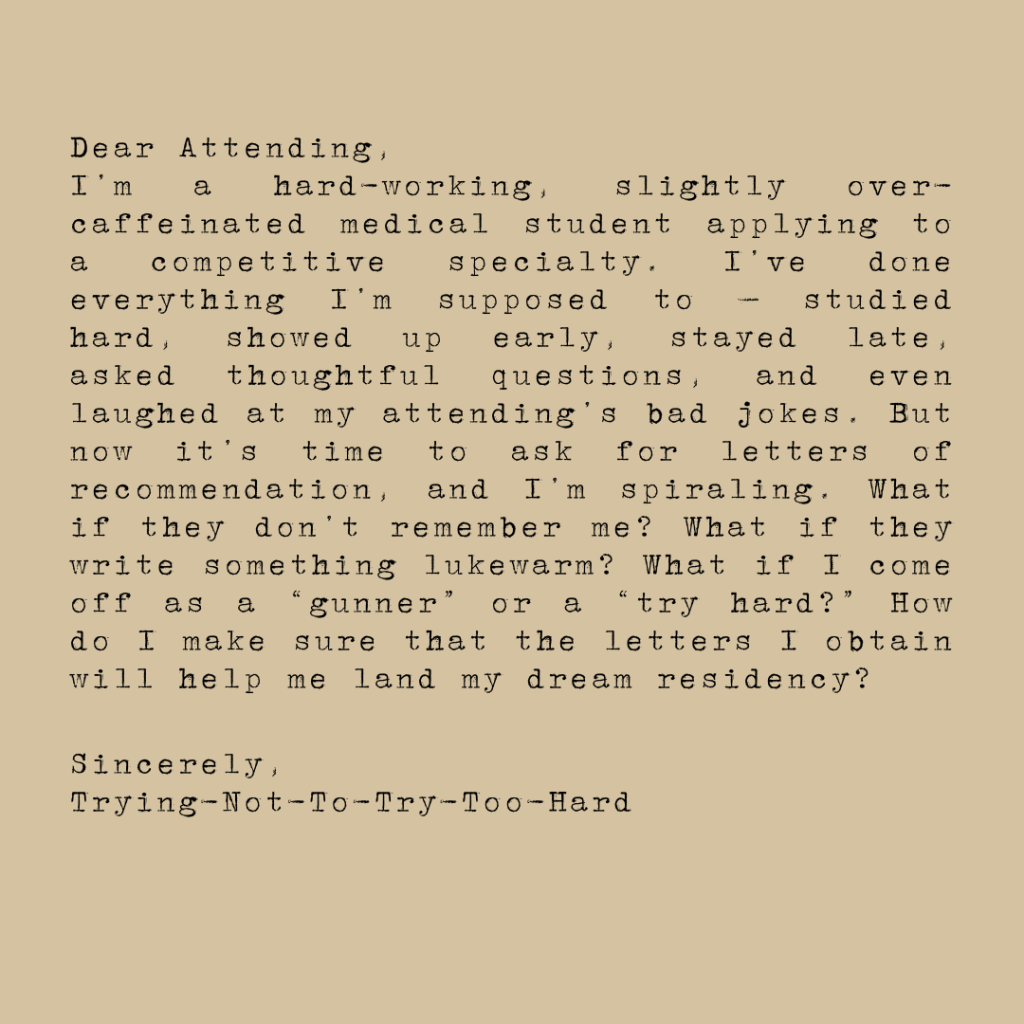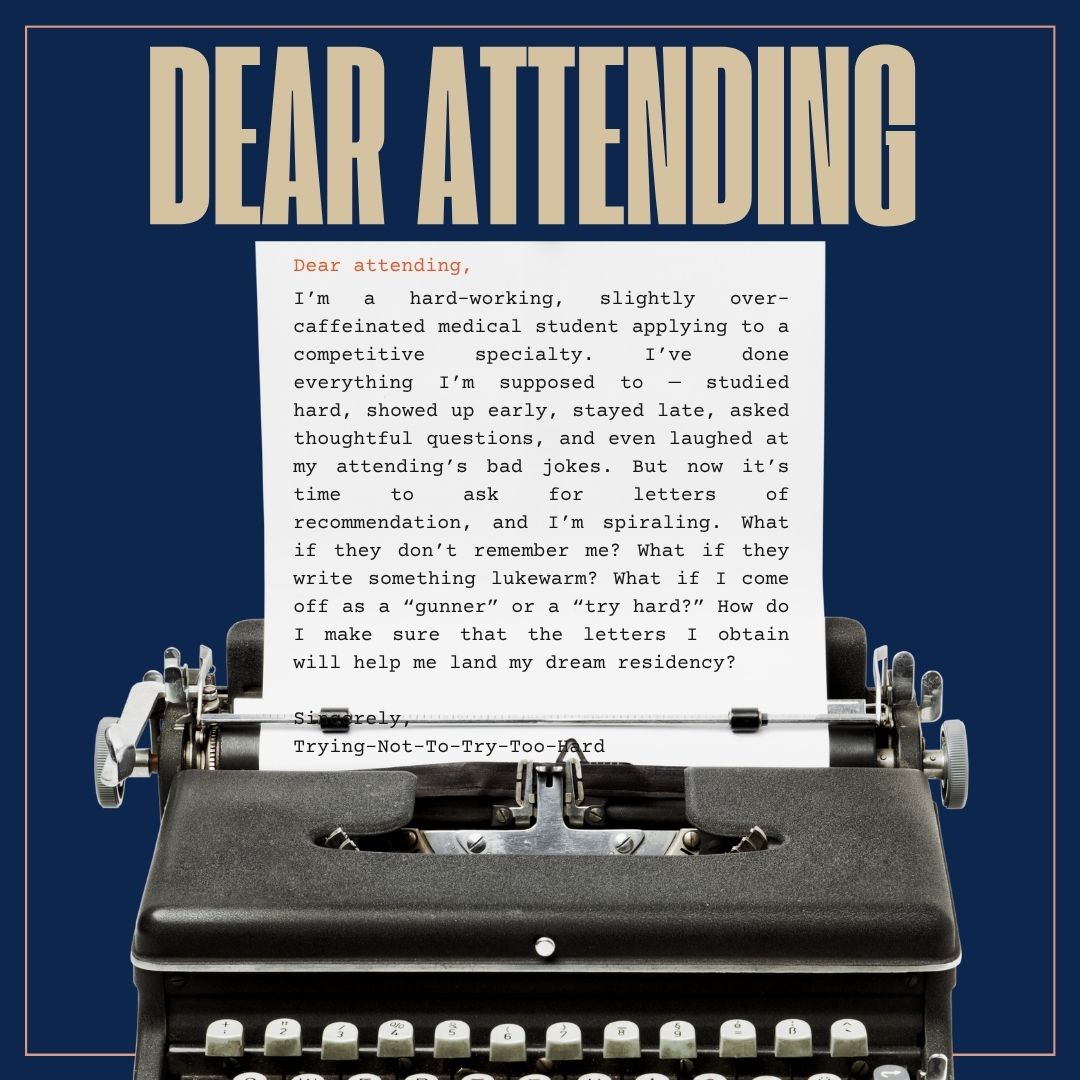 Dear Trying-Not-To-Try-Too-Hard,
Dear Trying-Not-To-Try-Too-Hard,
Asking for a letter of recommendation can feel weird. You know you need it, but it’s hard to shake the feeling that you’re asking someone to do you a big favor and hoping they remember you well enough to say something glowing.
When I was applying to dermatology (and later, for my “big girl” job), I came up with a system that worked surprisingly well. I half-jokingly called it my “Please-Like-Me-Packet,” and I worried at first that it might come off as overkill. But the feedback I got from letter writers was consistently positive.
Before you even ask someone to write you a letter, however, it’s important to make sure you’re asking the right person. Choose someone who has seen you work closely, not just someone with a big title. A glowing letter from a junior faculty member who knows you well is often more impactful than a generic one from a department chair.
Here’s what I included in the folder:
-
- My CV
- My personal statement
- A short paragraph explaining what the letter was for (e.g., ERAS application, fellowship application, etc.)
- A few points I hoped they might touch on (“If you feel comfortable, it would mean a lot if you mentioned my teaching involvement or how I handled that complicated patient on consults”)
- A short write-up of a meaningful experience we shared or my time on the rotation, to help jog their memory and personalize the letter
- The deadline and submission instructions
And while I worried it was a little “extra,” the truth is that most people want to write you a strong letter—they just need help remembering the details that make you shine.
A Word on Standardized Letters
In some specialties (especially dermatology), standardized letters of evaluation (SLOEs or SLORs) have become more prominent. If you’re in the top 10% of students, they can be great — they highlight standout traits in a structured way.
But if you’re more middle-of-the-pack or had a quieter rotation, these forms can work against you. Instead of capturing your growth and professionalism in a narrative, they emphasize what you aren’t. That doesn’t mean you shouldn’t get one — but be strategic. Choose letter writers who know you well and who you trust to write a strong endorsement.
Final Thoughts
As a young attending, I look back on the year leading up to matching in dermatology as exciting but incredibly stressful. It’s tough to stand out among so many qualified peers. The best advice I can give is: be yourself, be thoughtful, and support your letter writers the way you hope they’ll support you.
What started as my “Please-Like-Me Packet” has now become my “Anti-Impostor-Syndrome Packet” — a reminder that I’ve done the work, and I’m worthy of the opportunities ahead. I encourage anyone navigating this process to begin from that same place: confidence grounded in effort, and trust in the relationships you’ve built. And if you’re asking someone to go to bat for you, make it easy for them to say yes!
Did you enjoy this article? You can find more on Navigating Residency here.

